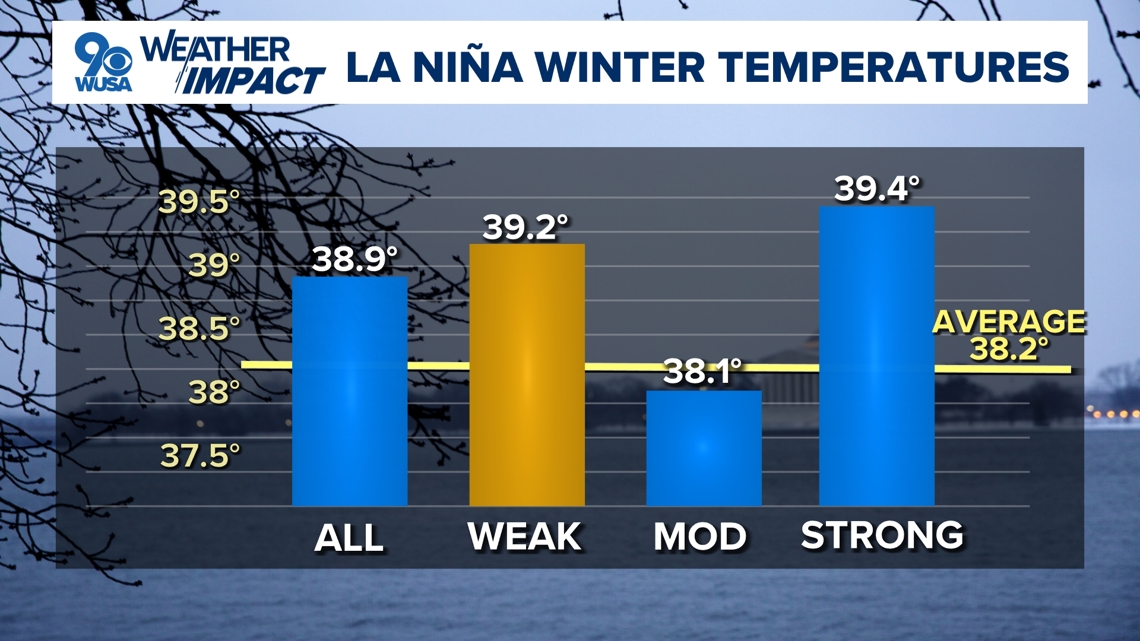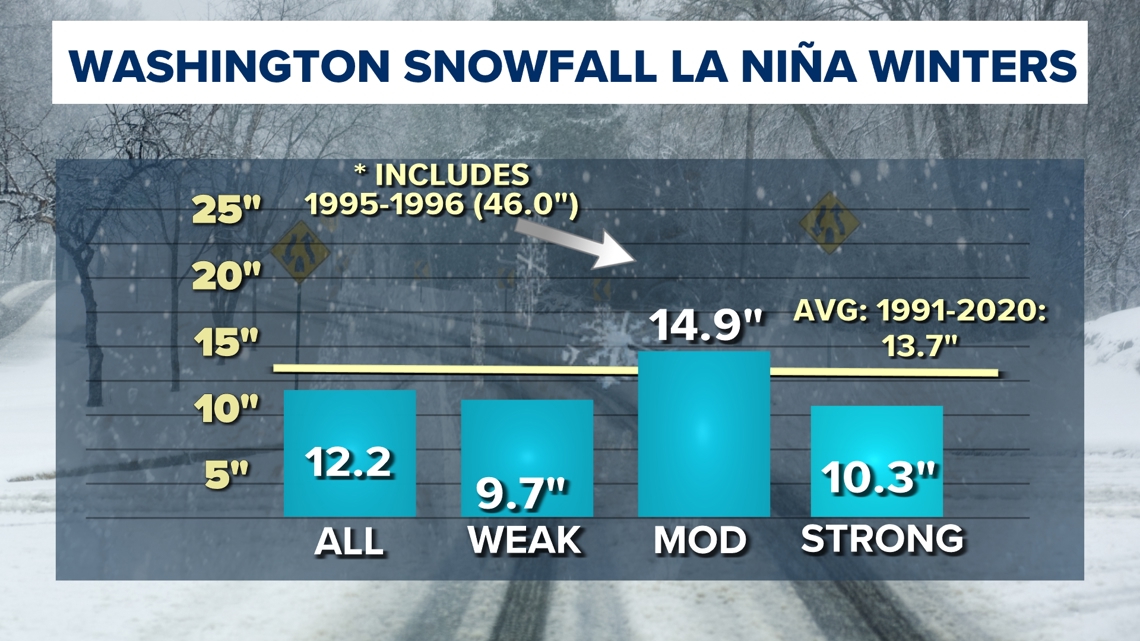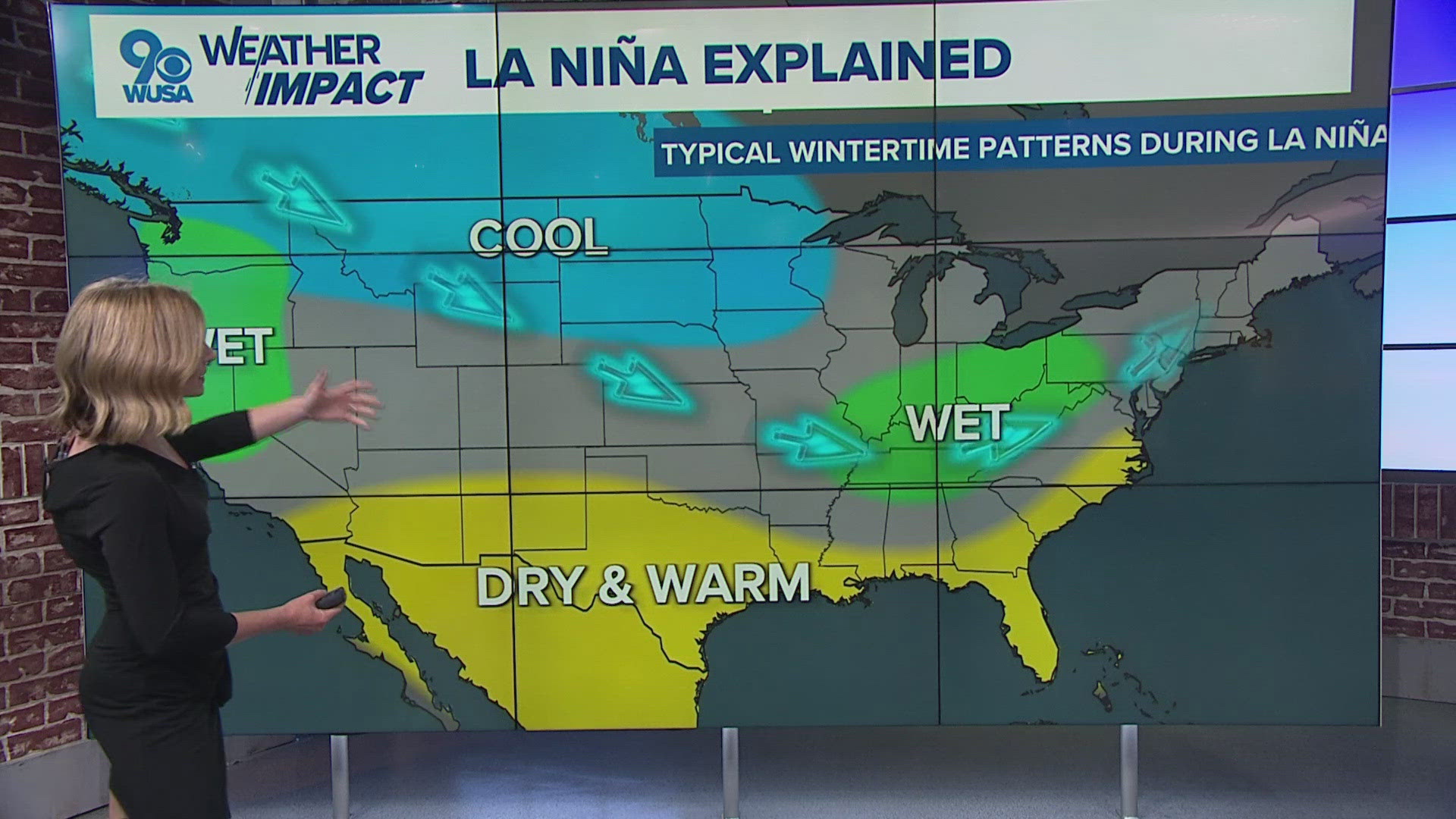WASHINGTON — The Climate Prediction Center - a division of NOAA's National Weather Service - released their forecast for the upcoming winter.
"This winter, an emerging La Niña is anticipated to influence the upcoming winter patterns, especially our precipitation predictions," said Jon Gottschalck, chief of the Operational Prediction Branch of the Climate Prediction Center.
La Niña typically leads to storms taking a northerly track during the winter months, which could result in wetter-than-average conditions for the entire northern tier of the U.S. Particularly the Pacific Northwest and Great Lakes region. However, that means drier-than-average conditions are expected for much of the rest of the country, including us here in the DMV. So you can assume that less precipitation = less snow...especially when you pair it with the temperatures we're expecting.
Warmer-than-average temperatures are expected in the southern tier of the U.S., eastern seaboard and New England, while below-average temperatures are most likely in the Pacific Northwest and northern High Plains.
Now keep in mind, not all La Niña winters are created equal. This winter is forecast to be a weak, short-lived La Niña and there is still a chance we end up in a neutral phase.
The average winter temperature for D.C. during a weak La Niña winter is 39.2 degrees. Which is one degree above the average winter temperature of 38.2 degrees.


During a weak La Niña winter, D.C. has historically seen an average of 9.7 inches of snow. The average winter snowfall for D.C. is 13.7 inches.


But the WUSA9 Weather Team says it all the time...it only takes one big storm in a winter season to make our snow total for the season go up!

